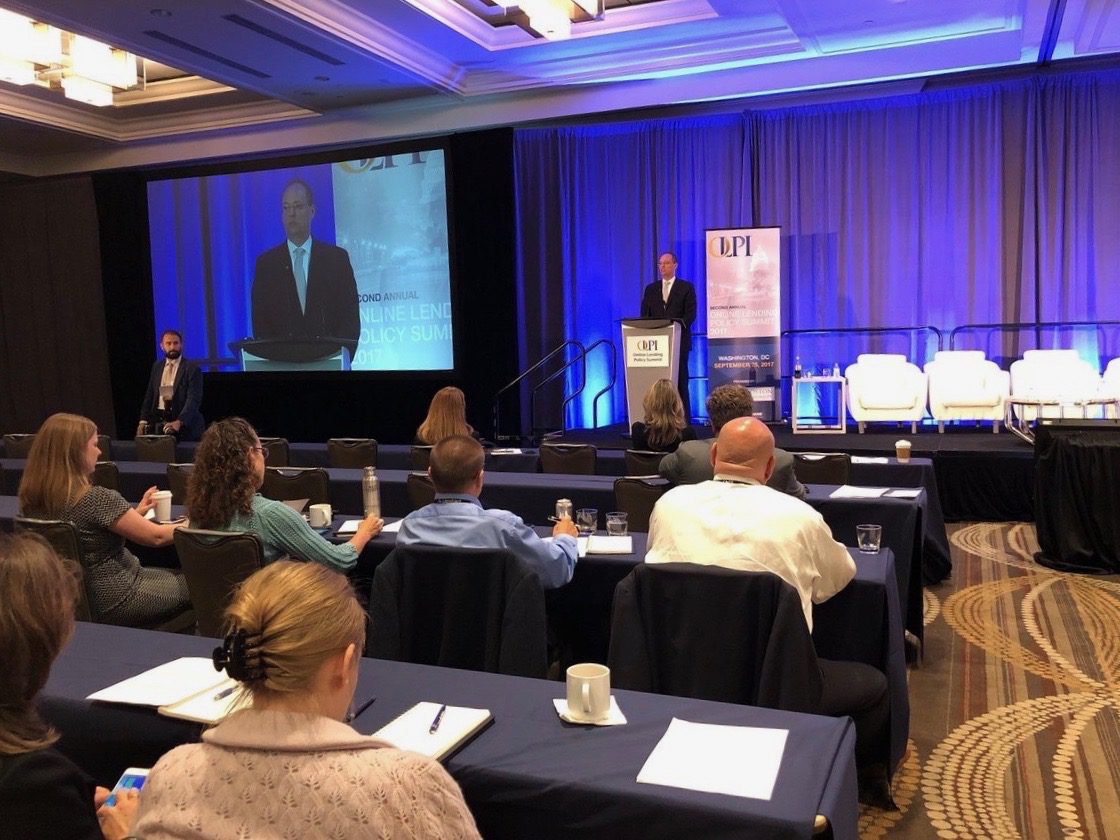The new head of the OCC, Joseph Otting, reaffirms the agency’s support of the fintech charter. Source
While giving a speech the acting head of the OCC stated that banks need more competition not less; he also commented on companies like Amazon or Apple becoming banks, Noreika states; “Laws that prevent companies with resources and means from becoming competitor banks only serve to protect existing big banks from would-be rivals”; as Crowdfund Insider reports the benefits of having big tech companies become banks could help to lower cost, increase access and help to serve those who might be left behind by traditional banks. Source.
American Banker reports on the lobbying group called Financial Innovation Now and that some technology giants are meeting individually with government agencies; Amazon met with the OCC starting in the second quarter of 2016 and met again this year; PayPal has also met with OCC officials in several quarters last year. Source
State regulators are reacting to the proposed federal charter that would grant nationwide licensing to fintech companies; states are beginning to plan for initiatives that would make state chartering more compelling for fintechs while also protecting standards built for banks in the state; states believe harmonizing the regulatory requirements is necessary; New England states are currently working in collaboration on licensing and overall state regulators are envisioning a passporting environment where states collaborating on requirements can institute approvals with lower costs. Source
The OCC has filed a motion to dismiss in a court case filed by the CSBS suggesting that the agency is not authorized to issue the fintech charter it has been drafting to support the growth of fintech companies in the US; the primary argument of the CSBS centers around the issuance of a national charter to fintech companies offering only unbundled banking services with no deposit taking business; in its motion to dismiss the OCC says the CSBS' allegations are speculative given that the OCC has not yet begun taking any applications for a national charter. Source
The Office of the Comptroller of the Currency (OCC) has shifted back to a softer stance since the Trump administration took office; according to the New York Times the agency is using directives from the interim head to ease back regulations enacted during the Obama administration; the move is part of a wider push to set back financial regulations that some say have hurt banks in recent years. Source.
Keith Noreika, the acting Comptroller of the Currency recently signed the first full-service de novo national bank charter since the financial crisis to Winter Park National Bank of Florida; Noreika believes there are still too few new banks and part of the problem is the onerous process; Noreika outlines the lengthy process and discusses his suggested changes in his testimony back in June. Source
Yesterday, I attended the second annual Online Lending Policy Summit in Washington DC. It was headlined by the Acting head of the...
Mobile-focused digital banking provider Varo Money has applied for a banking charter with the Office of the Comptroller of the Currency (OCC) and the Federal Deposit Insurance Corporation (FDIC), as chartering options continue to be debated for US fintech companies. Varo Money is the second fintech company to apply for bank chartering following SoFi who currently has an application pending with the FDIC.
Varo Money has applied for two approvals, one a national banking charter with the OCC and the second an application for deposit insurance with the FDIC. According to the Wall Street Journal, approvals would allow the company to take deposits, pay interest, make loans in any state and issue cards, all independently.
Details of the firm's applications have not been released publicly and it's likely to be a slow process for approval with the OCC who is currently being sued over offering a national banking charter for fintechs. The FDIC process also includes an open comment period which has been challenging for SoFi. Varo Money does have a significant investment from Warburg Pincus which also includes support from former US Treasury Secretary Timothy Geithner, who is the firm's president.
In a statement defending allegations against its issuance of new bank charters, the FDIC reaffirmed its authority to review and approve applications for US businesses seeking deposit insurance from the FDIC; the criticism comes from the OCC as it continues to develop plans for its national fintech charter; in a podcast interview Friday with a Commodity Futures Trading Commission official, Keith Noreika criticized the FDIC's process for chartering banks, suggesting that the open process was too long and cost too much for requesting companies eventually leading to many withdrawn applications; Noreika also said the OCC has proposed a bill that would take away the FDIC's role in approving newly chartered entities for deposit insurance. Source


